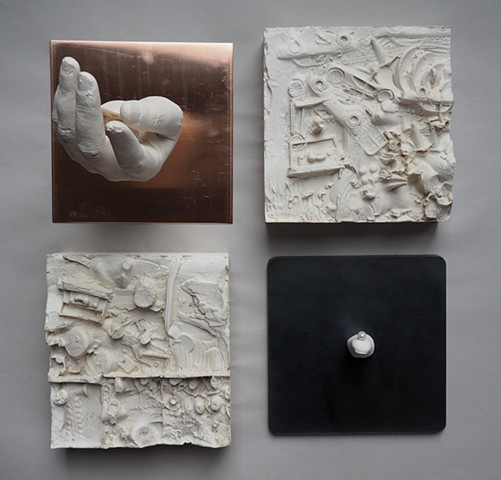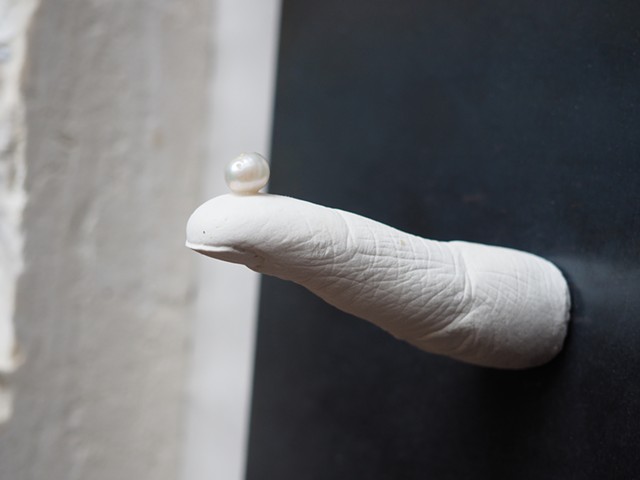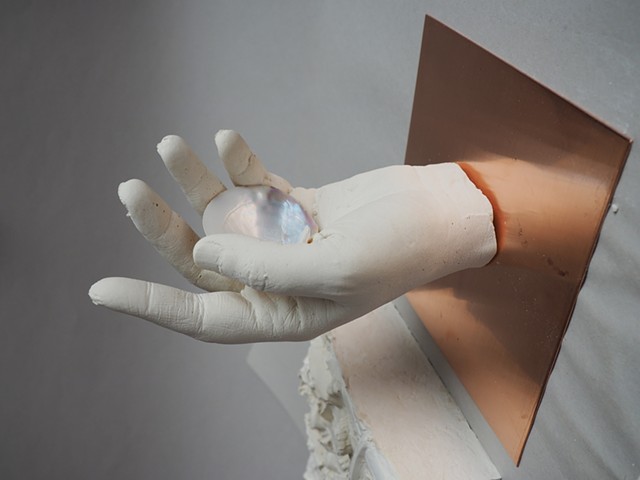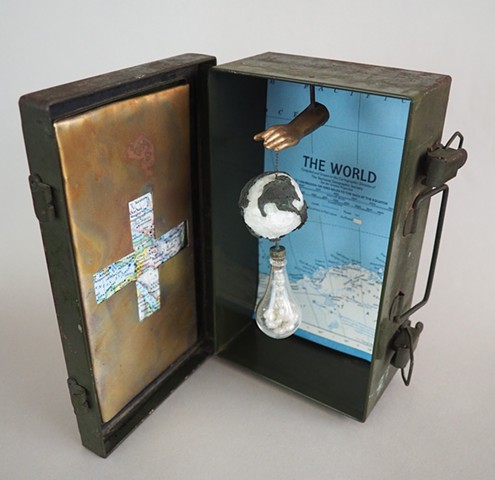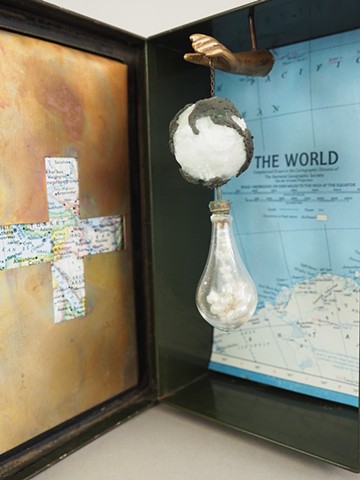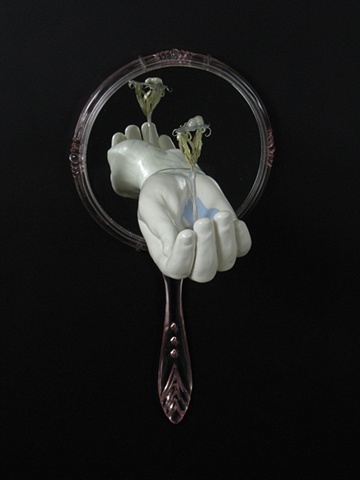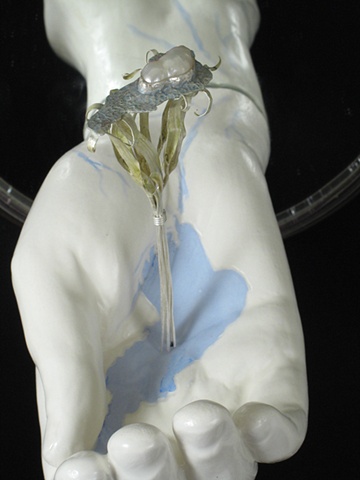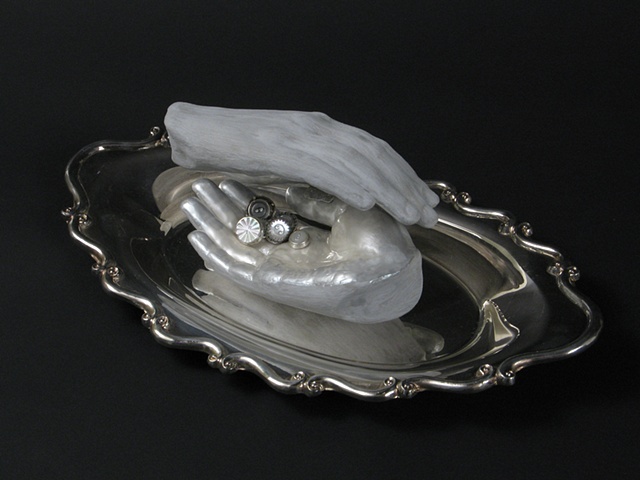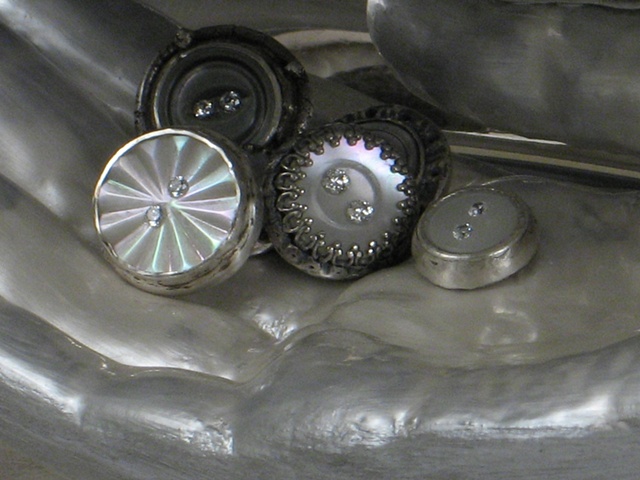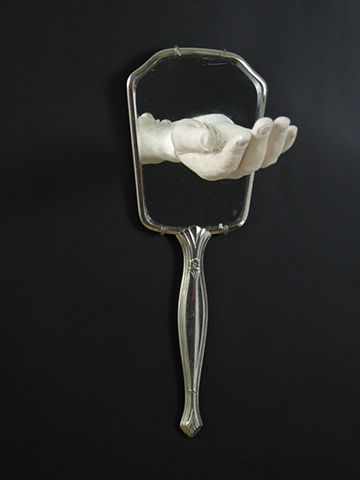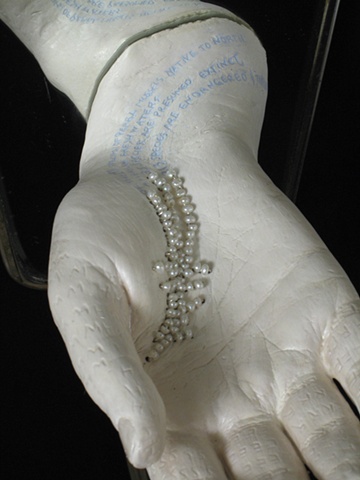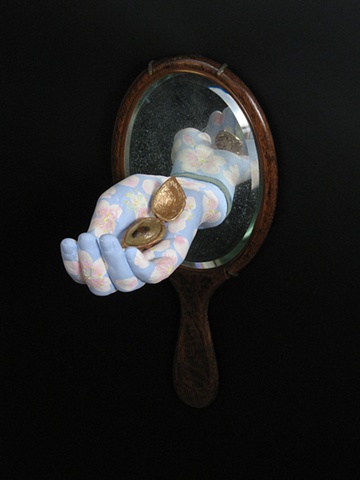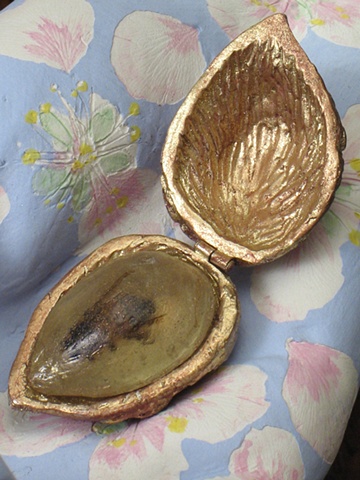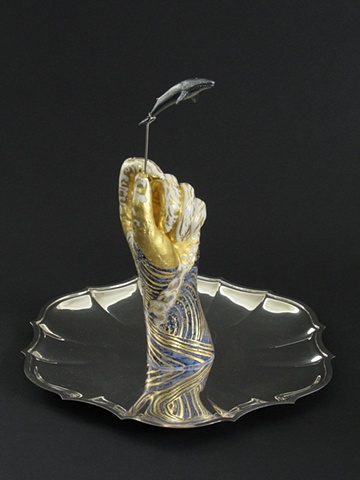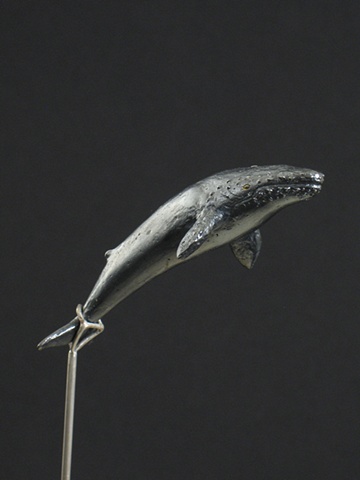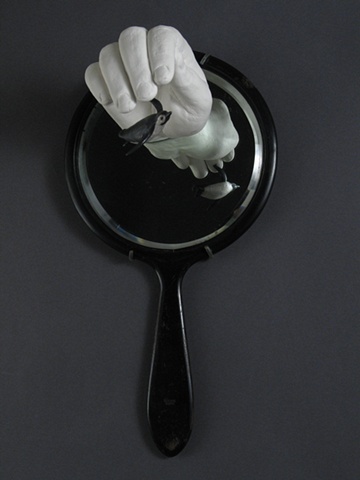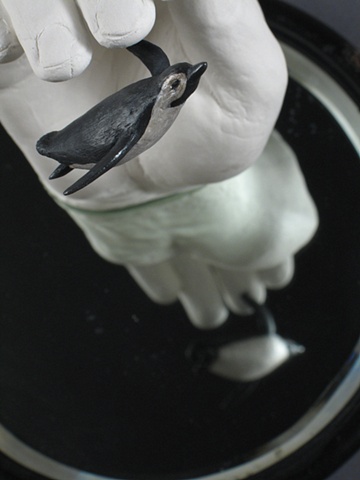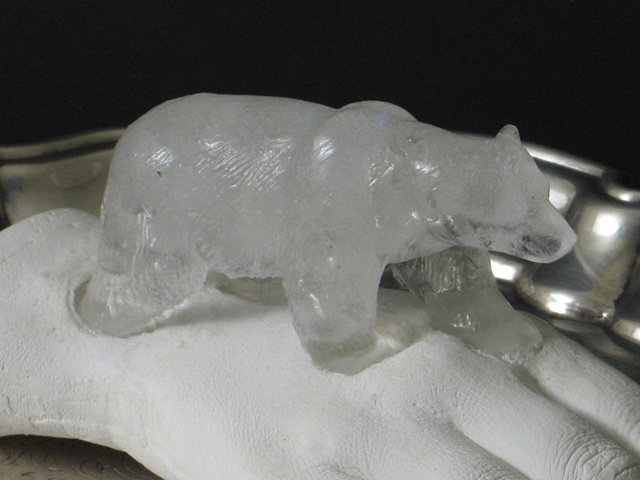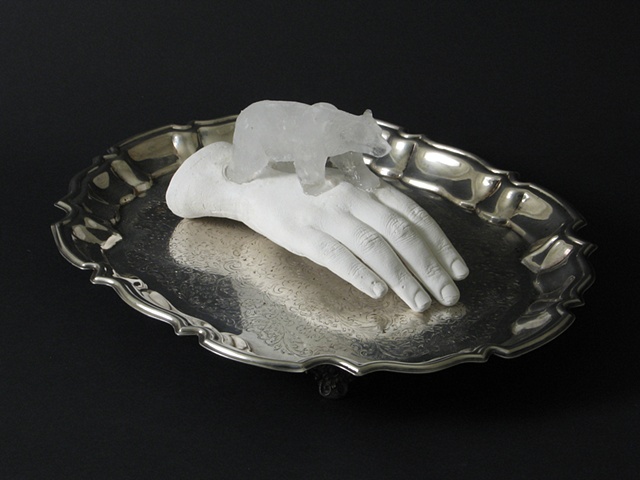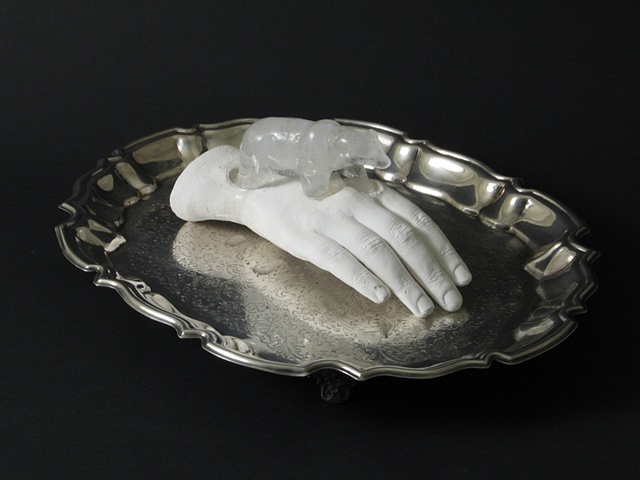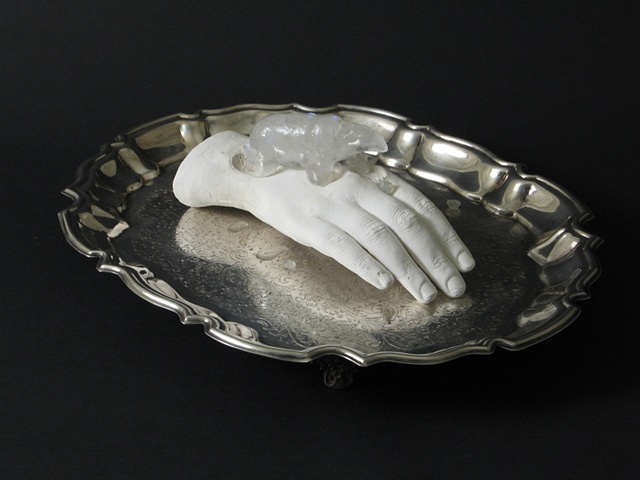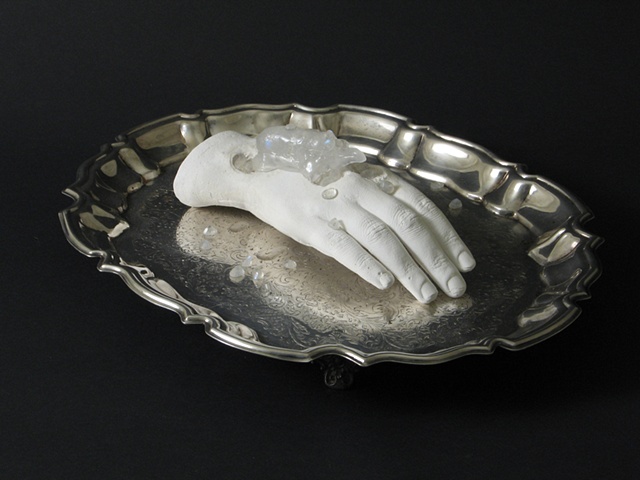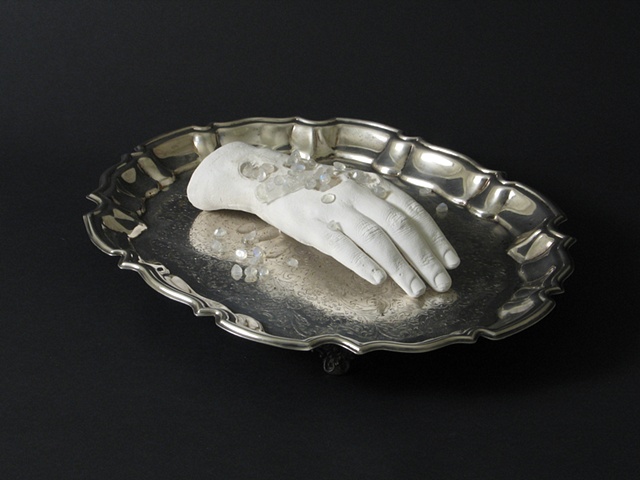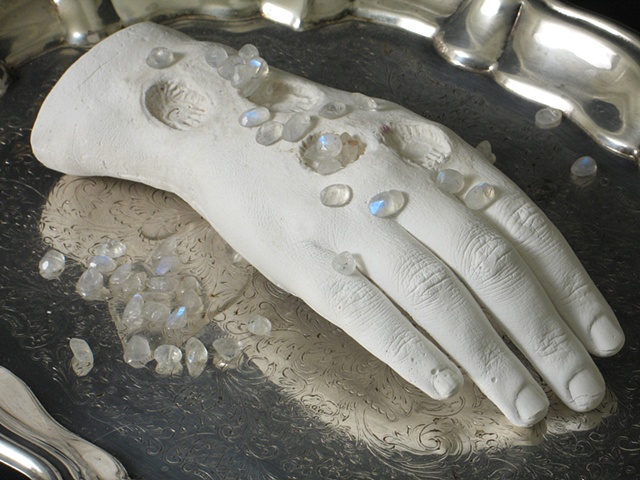The Things We Hold
The artwork contained in this ongoing series investigates humanity’s strained relationship with nature. These narrative sculptures and paintings are my quiet prayers for a rapidly changing natural world; they are talismans against loss. I create them as a way to proactively react to my personal worries about global environmental change.
It deeply saddens me that, during my lifetime, I will probably witness accelerated extinctions of a wide variety of flora and fauna. The Polar Bear, the Tasmanian Devil, the Mountain Gorilla, the Green Turtle--these animals are only the familiar animals on a long and growing list of Endangered Species. But what about the Freshwater Mussel, the most imperiled faunal group in North America? While definitely not as glamorous as larger, furrier, more “popular” species, even this creature plays a vital role in its own ecosystem. And there are many, many living things like the unfamiliar Freshwater Mussel. The loss of one ultimately affects the greater whole.
The idea of “the part in relation to the whole” is evident in both my sculptures and paintings. Each work is a composite of various parts; some components are fabricated or painted, while others are found objects or picture clippings. Yet the parts are all connected to each other distinctly.
Many of the pieces utilize symbols and materials common to religious art. The egg, the mirror, the hand, the platter, the stars, the illuminated letter--these have long been universal symbols. As in various religious relics and paintings, precious materials are used in my art to emphasize ideas of value, worth, preciousness.
In most of the sculptures, one is able to see a reflection--of oneself as well as the object. This is not arbitrary or coincidental. I want you to reflect upon how you relate to the objects being displayed, and how you fit within a larger whole. I want you to think and question, because wonder is a very powerful thing.
As it is when we seek answers to any existential question, pondering our relationship to the whole and deciding how we relate to a larger, greater cosmos is ultimately a solitary act. At one point in time, each one of us must look in the mirror--alone--in order to clearly see what is ultimately valued, cherished, and believed.
